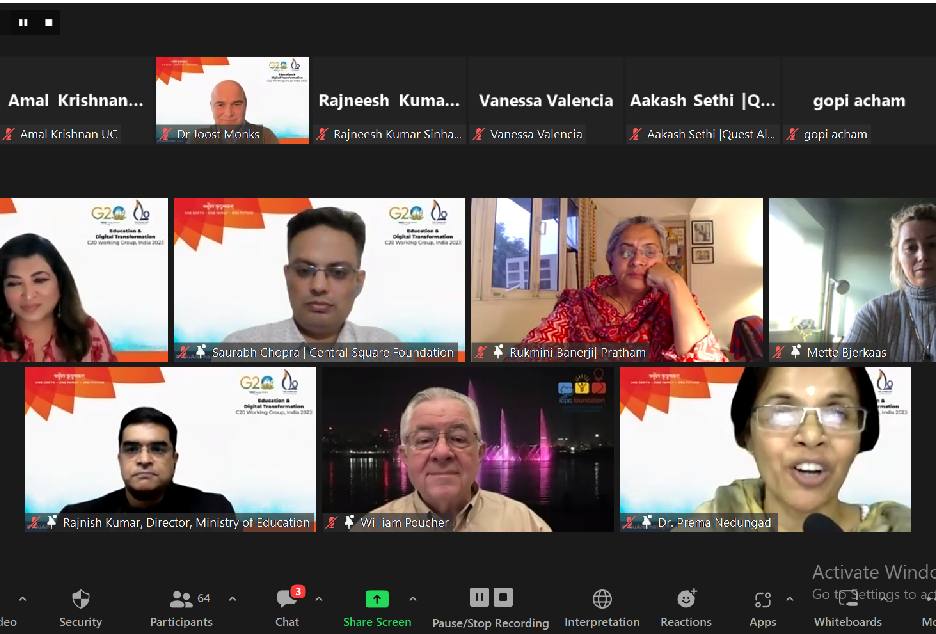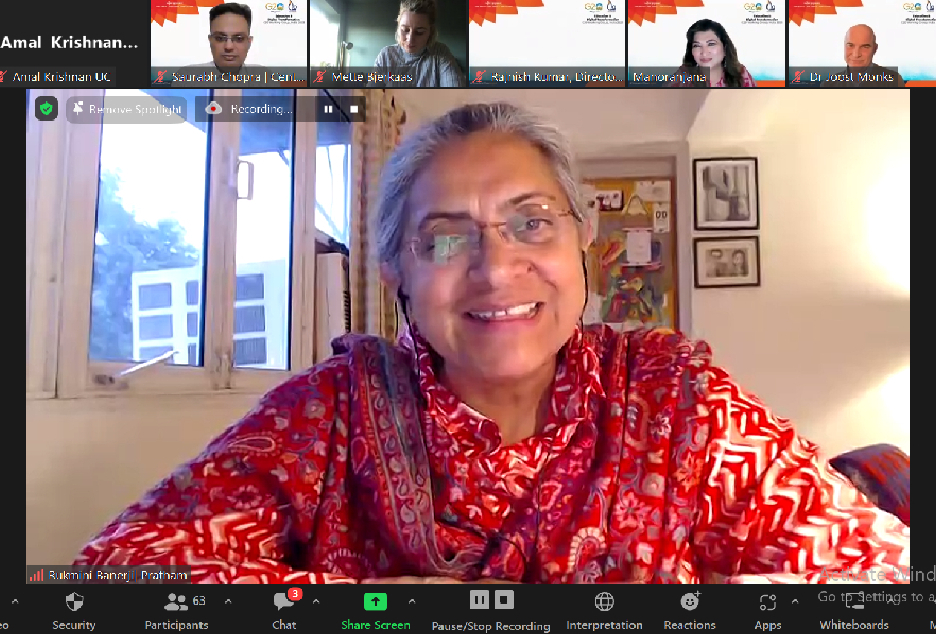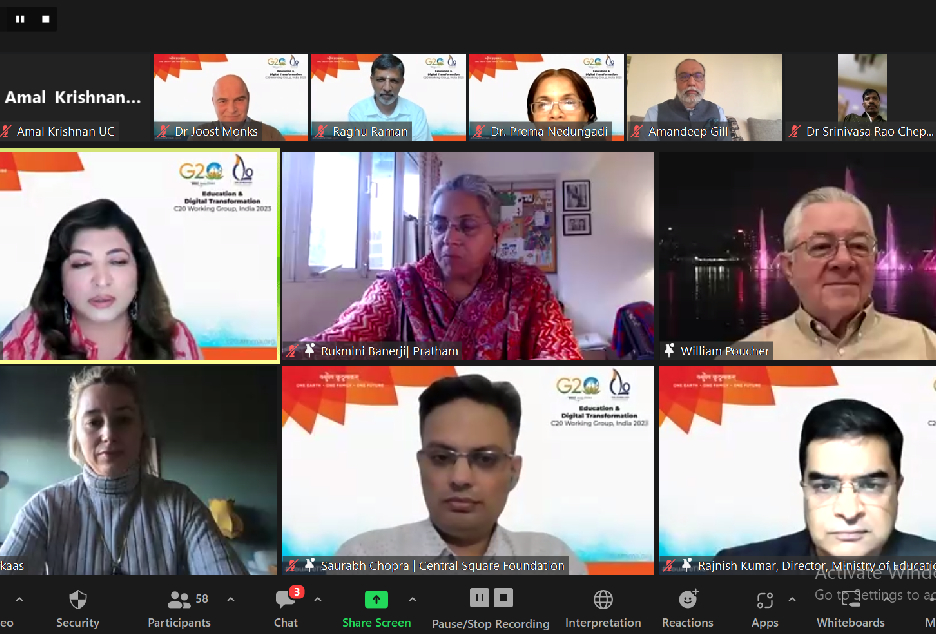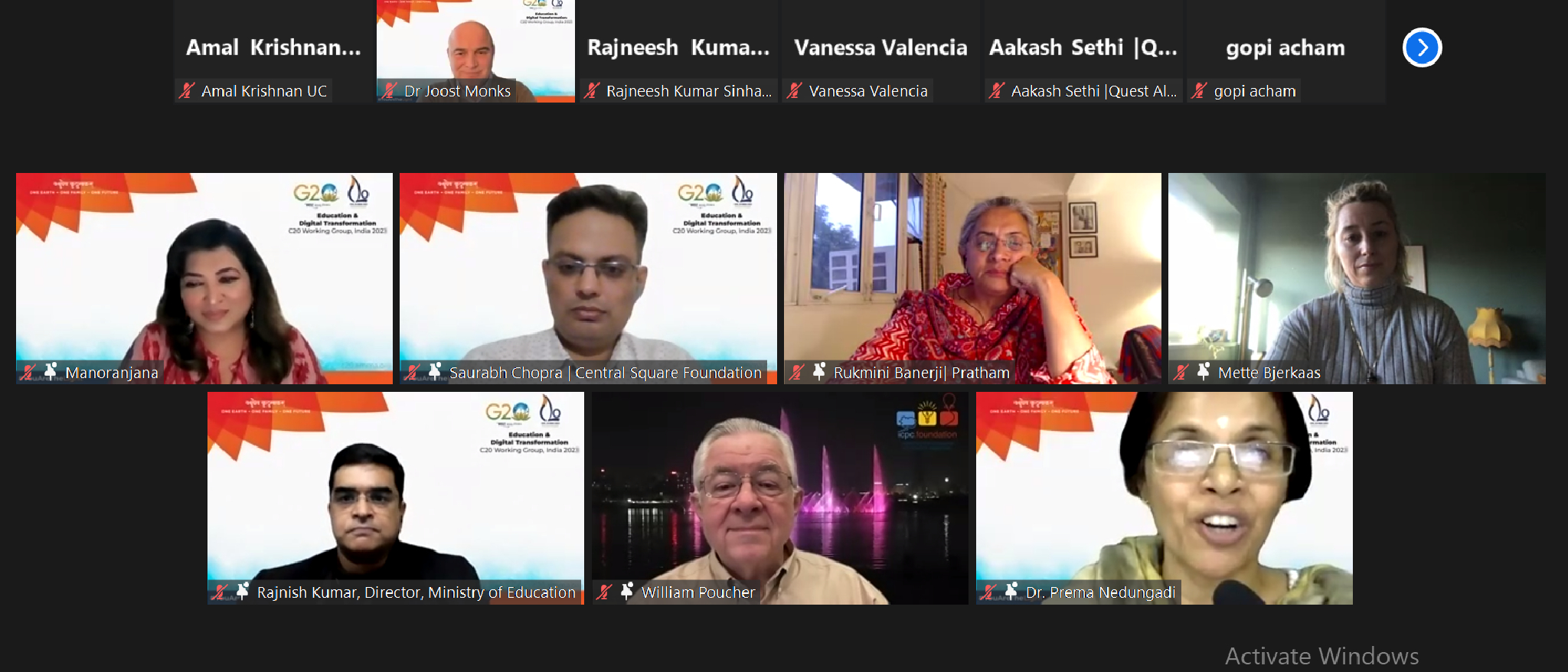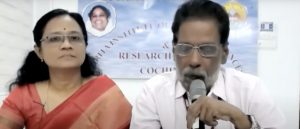A Virtual Symposium was organized by the Civil 20 Education and Digital Transformation Working Group (EDT WG) on February 19, 2023. The meeting-initiated discussions on some of the most pressing challenges and barriers that CSOs and experts face in their communities, which could be developed and framed into C20 policy recommendations.
Civil 20 EDT Coordinator, Dr. Prema Nedungadi, Director Amrita CREATE, and Chairperson, School of Computing, Amrita Vishwa Vidyapeetham, said, “There is a vast potential to join hands and seek solutions to the world’s challenges at this critical time.” Education and the adoption of the right technological interventions can empower communities.
Welcoming speakers and participants, Dr. Joost Monks stated,“Amma, as we call her and her compassionate view on education and digital transformation inspires our works.” Dr. Monks then introduced and welcomed the panel members. Dr. William Poucher was the first to share his viewpoints on Education and Digital Transformation.
Dr. William Poucher, Executive Director and President of the ICPC Foundation, USA, shared his experience on how the ICPC community comes together to find a solution to provide and perceive computational intelligence, encouraging students to excel in computer science through practice, coaching, and developing solutions.
The next panelist, Mette Bjerkaas, Senior Adviser, School Redd Barna – Save the Children, emphasized the significance of ensuring accessibility to people’s needs and not discriminating in order to ensure that no one in society is left behind. Using technology, Norway has welcomed diversity in schools. Students in the class use technology and translation software to learn better.
Thought leader and CEO of Pratham Education Foundation, Dr. Rukmini Banerji, stated that policy formulation should look at practice to see what can be done to fill gaps in the current system and expand on it. The significance of mobility was emphasized. Citing the example of Covid 19, which accelerated technology learning and supported the school system, there was a digital divide because smartphone access was not prioritized for females and the family’s younger members.
Representing the Department of School Education, Ministry of Education India, Dr. Rajnish Kumar, who serves as the Director, said that NEP 2020 is perceived as a best education practice implemented by the Government of India since the policy addresses equity, equality, and quality teaching at the school level. The focus on technological support for education in the form of online learning tools and techniques, such as AI, chatbots, and multilingual tools, ensures lifelong learning and makes the best content accessible, accelerating literacy in India.
Putting forward the perspective of CSOs, Saurabh Chopra, Project Director – Government Partnerships, Center Square Foundation, emphasized the importance of technology in education. Government investment in technology to supplement teaching, promote research, including courses for classroom teaching and find what is working and what is not working while considering the teaching environment, which varies from cities to towns to Urbans and tribal areas. He insisted that the focus is on individuals depending on the region, teachers, and technology and ensuring the safe use of technology and optimization to benefit the teaching community.
